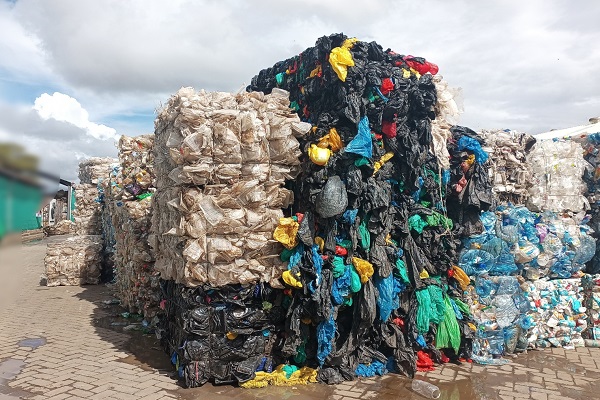Garbage cleanup activities — the likes of incineration or waste treatment plants, landfill sites expansion, manual collections at community or national level and other technologies — which have proliferated in response to the growing waste crisis may not offer a solution in the long-term.
According to environmental experts, these are quick fixes that only serve to clean up the mess without tackling the root cause of the waste problem.
To many advocates of the sustainable waste management solution, current cleanup technologies are ‘clean-washing traps’ which Governments in Africa, a continent disproportionately affected by the global waste menace caused largely by industrialized nations, should not fall for.
“They are distracting the national policy makers from the real solutions,” says Piotr Barczak, circular economy program manager at African Circular Economy Network (ACEN).
In Berzack’s view, what Africa and the world needs at the moment is to prevent waste. “Any approaches of dealing with waste other than reducing or reusing them, repairing, repurposing waste materials or upcycling are not sustainable.”
Global push
Calls on Governments in Africa to rethink existing cleanup technologies grew louder over the recent months as countries engaged in global push to address the waste problem, including through negotiations toward a global plastics treaty at United Nations, as well as the formulation of circular economy roadmaps at country levels.
“I understand that in the current situation where plastics is being banned on land fields these [clean up approaches] could be a better solution, but let’s think long-term. How is it sustainable, how ethical is it?” says Barczak.
Also read: Funding woes plague circular startups working to fix the waste crisis
According to environmental organisations, things like waste incineration, plastics credits, biodegradable plastics are all ‘cleanwashing’ approaches that create wrong incentives for continued pollution. The same applies to devices used to clean up waste from water bodies, as well as those involving the release of bacteria into the environment to deal with plastic waste.
Incineration, for instance, involves burning which is even worse because it releases more dangerous hazardous emissions that pollute the atmosphere, while at the same time increasing the demand for the waste to be generated.
Trouble
With waste volumes on the rise across Africa thanks to fast urbanization and prevailing linear production and consumption patterns, continued reliance on cleanup activities of the above nature foments trouble.
The latter happens in form of pollution which affect millions within national borders and beyond, with far reaching effects on the ecosystem of the areas where waste are disposed.
Also read: Plastics are in the fish you eat; Lobby groups now push for regional ban
It is estimated that the annual waste generated in sub-Saharan Africa increased by more than 100 percent from 81 million tons to 174 million tons per year between 2012 and 2016, according to a 2023 study by Germany-based Institute for Ecosystem Research and Hong Kong Polytechnic University.
With a collection average of 44 per cent, waste from 56 per cent of households in the region are dumped informally, ending up in water bodies.
Response by governments have come under scrutiny amid increased investments in things like incineration plants or expansion of dumpsites, among other cleanup activities by national authorities of Ethiopia, Nigeria, Ghana, Kenya and other expanding African economies.
An October 2023 report by UK-based Environmental Investigation Agency (EIA) and Ocean Care, a Swiss non-profit organization, cautioned that clean up technologies which have become increasingly popular over recent years could have unintended consequences and should be regulated under larger efforts to restore polluted ecosystems.
In the context of the global treaty to end plastic pollution under negotiations, the environmental organisations want Governments to focus on upstream solutions including prioritising reducing production of plastics, rather than relying on quick fixes which can be costly and have broader negative impacts.
Also read: Experts weigh in on ways to make zero-waste economy work








